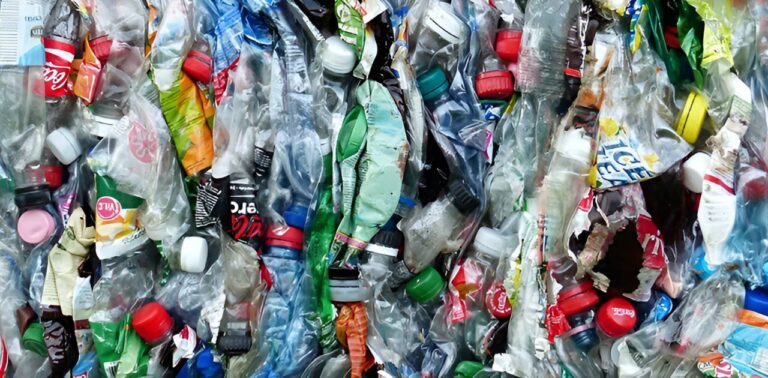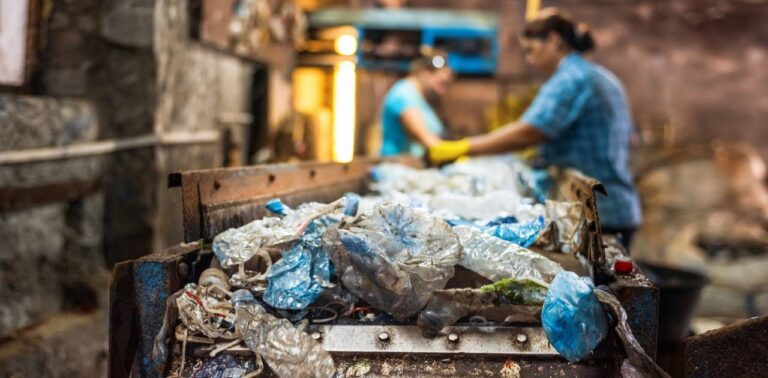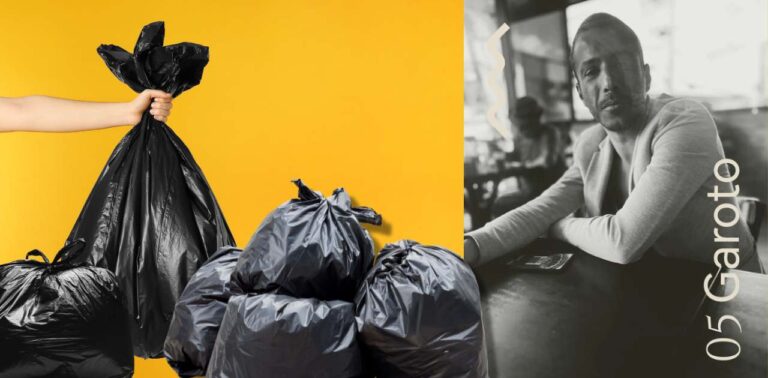If you’re thinking about getting into the plastic recycling business, you’re on the right track! Plastic recycling is an area with huge profit potential, especially as solid waste laws become stricter. Here are some essential tips for getting your business started and understanding the processes involved in plastic recycling.

The Potential of the Plastic Recycling Market
Plastic recycling began when industries themselves began to reuse their production waste. Over time, this process evolved, separating plastic from waste and creating a specific market for recycled material. Today, plastic recycling involves modern technologies and processes that allow the production of articles with an ever-increasing percentage of recycled plastic. Investing in this sector is not only a smart financial decision, but it also contributes to a more sustainable environment.
Learn about the Types of Plastic and Their Recycling Processes
To set up a plastic recycling business, it is essential to understand the different types of plastics and how each one is recycled. Here are some of the most common plastics and the processes applied to them:
Plastic Film
Plastic film is widely used in grocery bags, garbage bags, milk pouches, and other items. The recycling process for this material begins with the separation of waste. The plastic is then baled and fed into a binder, where it is heated by friction. This turns the plastic into a type of flour. Water is then added to cool the material rapidly, which causes the polymer molecules to contract and clump together, forming pellets.
These pellets are then fed into an extruder, which melts the plastic into strips. After a cooling bath, the strips are shredded into smaller pellets, which are bagged and sold to plastics manufacturers.
Rigid Plastic
Rigid plastics, such as soda bottles and food containers, are widely used in Brazil. These plastics are sorted, baled, and then ground in a knife mill. The material is washed, dried, and transferred to a binder and extruder, where it is processed into pellets. These pellets can be used to make new products, mixed with virgin resin or used alone to create new items.
The main types of rigid plastics include:
- Polyethylene Terephthalate (PET): Found in soda bottles.
- High Density Polyethylene (HDPE): Used on beverage crates and buckets.
- Polyvinyl Chloride (PVC): Present in tubes and bottles.
- Polypropylene (PP): Used in food packaging and household utensils.
- Polystyrene (PS): Found in household appliances and disposable cups.
The Plastic Recycling Process
The plastic recycling process is essential to transform plastic waste into new products. Here are the general steps involved:
- Separation and Storage: Plastics are separated and stored properly. This is the first crucial step to ensure that different types of plastics are not mixed together, which can compromise the quality of the recycled material.
- Grinding and Washing: Plastics are ground into small pieces and washed to remove impurities. This step is important to ensure that the recycled material has the quality needed to produce new items.
- Agglutination and Extrusion: After grinding and washing, the plastic is processed in a binder and extruder. The binder heats the plastic and turns it into a dough which is then molded into pellets or strips in the extruder.
- Cooling and Perforation: The molten plastic is cooled and chopped into small pellets, ready to be sold to factories that will produce new products.
Considerations for Setting Up Your Plastic Recycling Business
If you are thinking about starting a plastic recycling business, here are some important considerations:
- Market Research: Do detailed research on the demand for recycled plastic in your area. This will help you understand the profit potential and define your business strategy.
- Infrastructure and Equipment: Invest in quality equipment for separating, grinding, washing, agglutinating and extruding plastics. The efficiency of your recycling processes will directly depend on the quality of the equipment.
- Regulations and Licenses: Make sure you comply with all local regulations regarding recycling and solid waste. Obtain all necessary permits to operate legally.
- Partnerships and Suppliers: Establish partnerships with suppliers of recyclable plastic and with companies that can buy the recycled plastic you produce. These partnerships are essential to the success of your business.

The Environmental Impact of Plastic Recycling
Plastic recycling plays a crucial role in preserving the environment. By recycling plastic, you contribute to reducing landfill waste and help minimize pollution of oceans and natural ecosystems. In addition, recycling plastic reduces the need to produce new plastic, which reduces the demand for natural resources and energy.
Investing in a plastic recycling company is not only a smart business decision, but also an effective way to contribute to protecting the environment. With the growing awareness of the importance of recycling and the need for sustainable practices, the demand for recycled plastic is expected to continue to grow.
Starting a plastic recycling business is a great opportunity for anyone looking to contribute to a more sustainable environment while generating profit. With the right knowledge about plastic types, recycling processes, and practical considerations for starting a business, you’ll be well-positioned to succeed in this growing market. Remember, every step you take toward recycling is a step toward a healthier, more sustainable planet.
Check out other interesting facts about recycling clicking here.
Learn how to make art by recycling, Click here.
Summary




I would like to know in relation to the polyester fabric used in t-shirts, which category does it fit into?
thanks
For a quick understanding, Andrea, you can consider that PET is a polyester, regardless of its physical form.
But you need to be careful because polyester is usually mixed with cotton and this makes recycling practically impossible.
Hope this helps!
I think polyester yarn is more like POY, derived from PTA like PET.
This explanation is very interesting. I was in doubt but now I know which cooperative we can invest in.
COOTRALESTE
I'm glad we could help Hugo _/|\_
Good afternoon. I would like to know who are the buyers of crushed PET bottles.
Are there small machines for crushing bottles?
I would like to know Carlos Alberto's answer.
I replied, but maybe it’s not what you expected… 🙁 I don’t like publishing supplier lists because they get old very easily. But I’m researching a solution 😉
I am interested in knowing how to sell pre-washed and shredded plastics to industries, as there is already small equipment on the market that helps these processes to reduce volume and facilitate transportation.
I am interested in mixing PET mesh with spandex. Could you tell me if there is a factory that could supply me with this fabric ready-made? What would be more viable? Recycle and produce it myself or have a supplier make such a combination? Thank you.
I would like to know where to sell the recycled material afterward?
I buy the grain
If you need anything I can recycle it for you. 054 91555751
I would like to know your material, I use it to make polyethylene pipes, I need 30,000 kg per month, 017-32370898
Good morning!
Fabio, I'm from Piracicaba and I work with this material...how can I send you a sample?
Thanks
I have a relatively large recycling company, where we manufacture raw materials and strapping tape, as well as manufacturing cores used in tape rolls.
I have space to build more warehouses and I want to expand the business. I would like to know if you have any suggestions for a similar product that we could add to the business.
I am working on a PET recycling and preform production project in Cape Verde. I would like to know if you can give me some support on some issues.
I ask that it be by email, if possible.
I would like some tips on the field, as I am looking to open a recycling business.
Gentlemen, Entrepreneurs or investors.
I have 20 years of experience in the technical plastics recycling market.
SEPARATION DECONTAMINATION CLASSIFICATION OF POLYMERS. I am looking for a partnership to set up a recycling depot.
Has a list of clients for all types of recycled materials.
I currently live in Ibiúna.
I do freelance separation labor
For any clarification, please contact me on WhatsApp 11-953407180.
I await your contact. THANK YOU.
I have a binder and I need to mix the plastic from the serum packaging used in hospitals and health centers with the plastic from the lids of the 20-liter bottles used at home. Both plastics are HDPE. In order not to compromise the flour resulting from the serum packaging, it is necessary to use a proportion: how many kilos of plastic from the lids in relation to the plastic from the serum packaging? I would like to thank you in advance for your attention and congratulate you on the initiative of the website.
Good morning, I am looking for a partnership. I am interested in collecting and selling HDPE plastic. I have a client who needs raw material.
If you are interested, please contact me, thanks
Good evening, I have a grain company and would like to find a buyer. Thank you very much in advance.
Good afternoon!
First, I would like to congratulate Ricardo Ricchini for this site, and second, to all the visitors for their interactions and exchange of information! In these terms, allow me to briefly introduce myself and then post a post that will certainly be useful to someone here or someone you know, dear friends!
A) I have been working in industrial machinery maintenance since 1977. From 1985 onwards, I also started working with PP extruders and subsequently the modification of some PP extruders for PET extrusion. Finally, as a general maintenance manager, related projects and installation, I coordinated from April 2017 to February 2017 the removal of a PET extruder, which had been deactivated in a factory in the interior of SP for approximately 4 years. We carried out the relevant restorations and today we are producing, with flakes and preforms, initially 120 kg/h of PET fiber, for internal consumption in the non-woven textile manufacturing of carpets, lining, etc.
B) The purpose of the above is to inform you that we have several tons of fibers "Known in the textile area as transition hair", that is, in production launches and/or color changes, we always segregate the transition material, pure PET, and as we do not yet have a machine to grind this, if anyone is interested in grinding it for recycling, just contact me, one of two things, either the company pays for the grinding, to recycle in the extruder or it will sell the material.
PS. I am currently working on a project for a 7-meter conveyor belt oven for drying PET after crimping. It is also important to note that if anyone needs technical advice for projects to improve the installation and/or modification of extruders, hydraulic presses, needle punches, cards and related products, modesty aside, I have been a manager of this and of industrial maintenance teams for over 22 years. I am retired due to time of contribution, as I started contributing early. Today, at 59 years of age, however, I work as a general consultant for this area and in the next few months I will be delivering this last extrusion line in full production and ending my commitment to the company. If anyone is interested in my work, I will be available after this current task.
Hugs to all and success!
I would really like to open a recycling industry in my city… Because the nearest industry is 1000 km away…
I think it would work... but there are no courses nearby...
I wanted a suggestion, would it work?
Dear friends.
I have a goal of setting up a recycling factory (which waste, paper or plastic, is yet to be determined) in my city. We know that the generation of waste is very large. Could someone provide a website to help with this information, what capital is needed, and what amounts will be needed for this waste? Is there any federal, state or municipal incentive that aims to donate an area for this purpose, knowing that it will be a company with the goal of creating jobs and reducing soil contamination levels? How can I find potential buyers in the market for this raw material that the factory will produce? I would appreciate it if you could send as much information as possible about this goal. Thank you.
Hello! I would like to know what you can suggest in the area of upcycling, is there any specific course for the sector that is not related to fashion and customization?